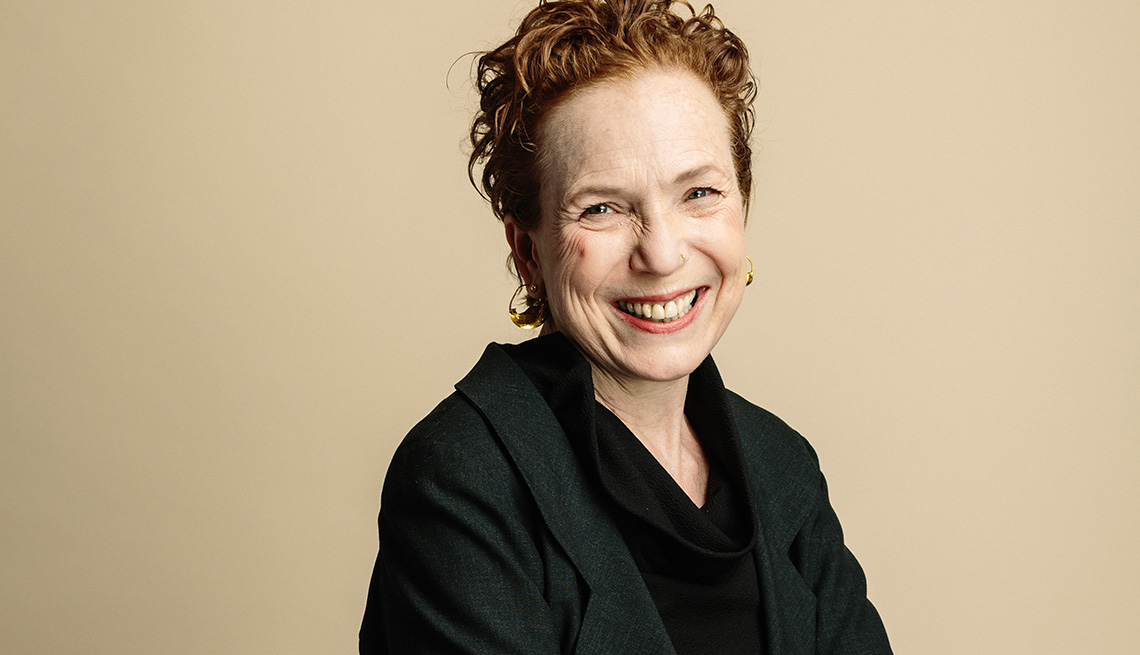
Aarp purpose prize fellow anne h. Pollack
- Select a language for the TTS:
- UK English Female
- UK English Male
- US English Female
- US English Male
- Australian Female
- Australian Male
- Language selected: (auto detect) - EN
Play all audios:

“These are safe spaces for survivors at undisclosed locations where they get services for what they need to rebuild their lives,” says Pollack, 59, founder and executive director of Crossing
Point Arts. “What I hope it will do for people is what it has done for me: I survived a rape as a young woman and I had the benefit of therapy, but without access to art, I never would have
come as far as I have. Art allowed me to process my own deeply shattering experience through creativity.” One of the organization’s goals is to help survivors of trafficking use creativity
to help regulate their emotions and restore a sense of inner calm when their distress might be triggered. For example, the teaching artists encourage participants to integrate the art
practices they’re learning into their daily lives to help them manage the emotional struggles and overwhelming thoughts that are common with post-traumatic stress. “I want to use the arts to
help people heal and bring them into states of self-liberation,” says Pollack. Since 2015, Ashley, a survivor of sex trafficking, has taken more than 20 music, dance, painting, drawing and
song creation classes through Crossing Point Arts. “The classes have been very therapeutic — whatever I’m going through, I put my emotions into the artwork and that releases them from me and
helps me feel more relaxed,” says Ashley, 24, who is working in a community kitchen and hoping to go back to school to study art or social work. The sessions have inspired Ashley to
continue drawing and painting at home during her free time, which she really enjoys. “She’s very talented,” Pollack says. “She has a great sense of color, form and composition, and her work
has a lot of emotion in it.” Stephanie Rooker, a therapeutic sound practitioner and musician based in Brooklyn, holds up to three workshops per month, using sound and voice work to promote
wellness and relaxation. “It really helps them cultivate a strength and sense of trust within themselves — and support each other,” says Rooker. “Over time, many [of the participants]
develop a leadership role in the group and encourage others and they become more empowered in the process.” More than 90 percent of the survivors who participate report that their feelings
of depression, anxiety, anger and fear are substantially reduced through the workshops’ creative practices, and they gain a sense of inner freedom and enhanced well-being that are signs of
post-traumatic growth, Pollack says. Next, Pollack hopes to launch Crossing Point Arts programs in Atlanta, Miami and Los Angeles. What’s most fulfilling, Pollack says, is the transformation
she sees in participants in every workshop. “The survivors often come in somewhat withdrawn and with a thousand-yard stare,” she says, referring to the unease and malaise that often
accompany post-traumatic stress. Within minutes of getting swept up in the arts activity, “there’s a presence, then an engagement, then energy shining into their eyes,” she says. “It’s
witnessing that internal crossing that’s so gratifying.”
